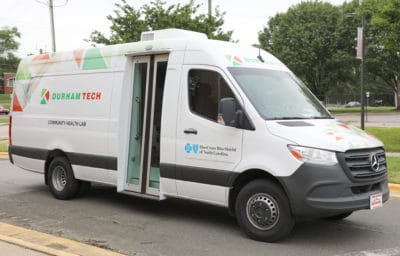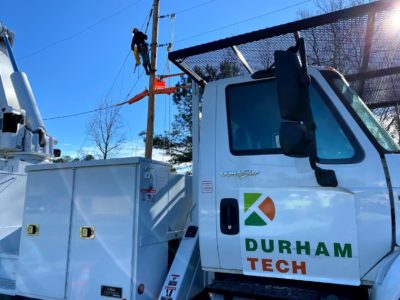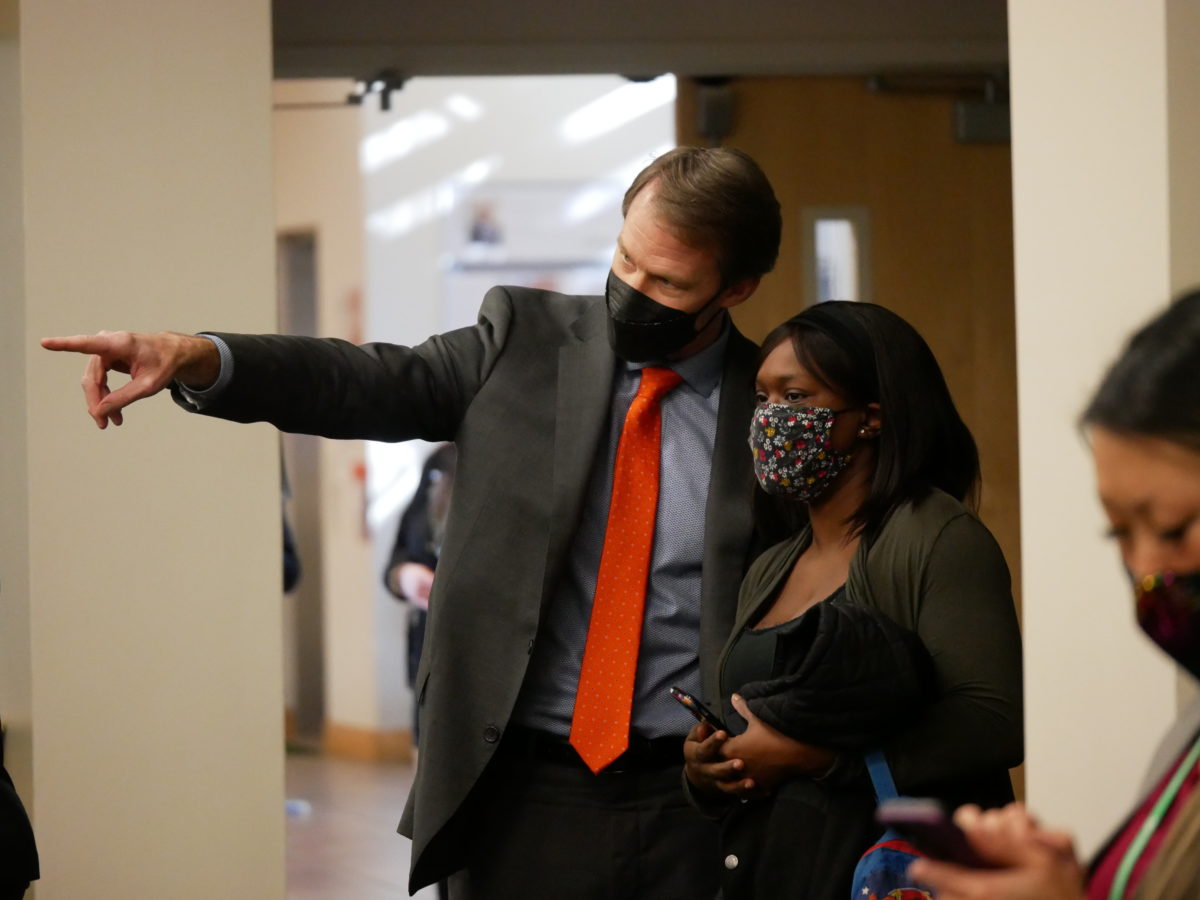
|
|
When Shima Earls was working to become an early childhood teacher at Durham Technical Community College, she and her four children had to live with others and in unsafe environments — and came close to living in her car.
When Sarah Pohlig was studying computer programming at the school, she struggled to make ends meet as a single mother. Her rent was $700 a month and her 4-year-old daughter’s child care was $1,000. Plus, there was tuition at Durham Tech.
“It’s hard for people to go out and do great things if they’re not coming from a secure, safe home base,” Pohlig said. “I think that’s almost impossible.”
Durham Tech is aiming to address housing insecurity of students and community members with plans for an affordable housing neighborhood near campus. Located at 902 S. Briggs Ave., the development will provide 124 affordable housing units with a mix of one-, two-, and three-bedroom residences to eligible students and community members. They plan to open leasing applications in fall 2024.
“This affordable housing initiative delivers on Durham Tech’s commitment to be part of this community’s solution to address housing insecurity and homelessness,” said Durham Tech President J.B. Buxton at a press conference Tuesday standing beside Earls and Pohlig. “We believe this project will be transformative for our students and the broader community who need affordable housing.”
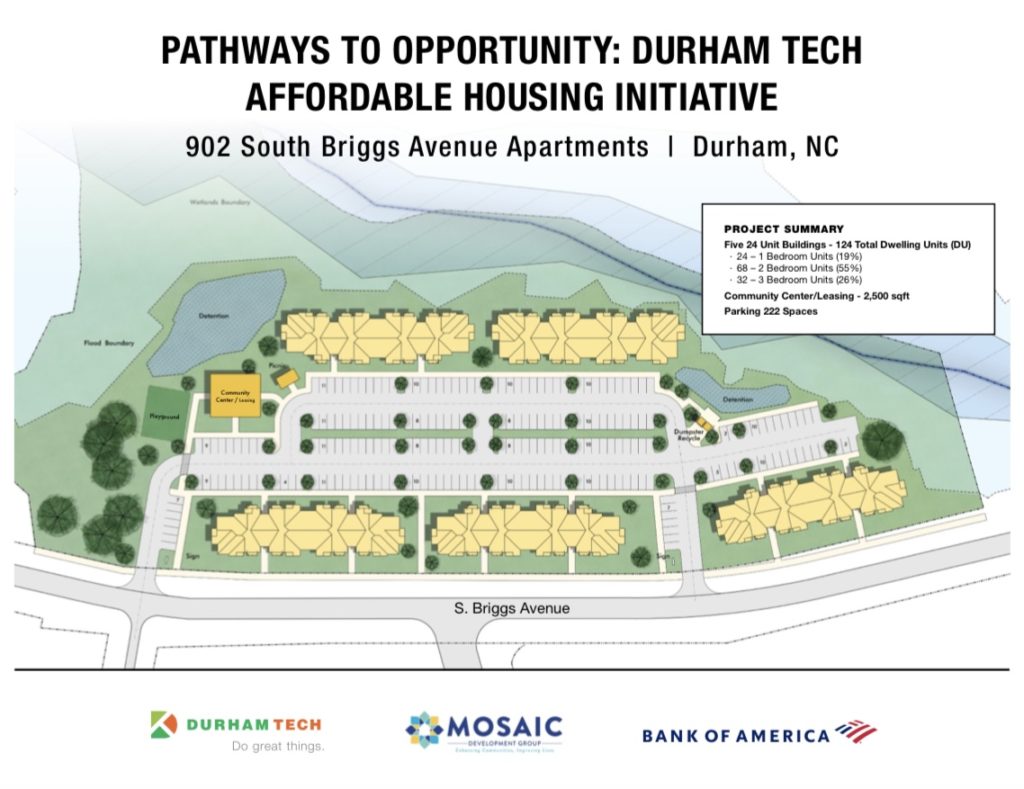
The project is expected to cost $29 million, Buxton said. The school’s Durham Tech Properties LLC, along with Mosaic Development Group and Bank of America Community Development Company, is requesting $5.4 million from the city of Durham.
The college is seeking other funding and hosting community meetings for feedback on the project’s details in the coming months “to make sure this housing community reflects the needs and wants of residents,” Buxton said.
The eligibility requirements for residents are not yet determined. Meeting dates and locations will be posted here. You can subscribe here for updates about the project.
“It’s not about a series of buildings we’re going to be able to construct,” Buxton said. “It’s about basic human needs.”
In 2019, a Temple University survey of more than 700 Durham Tech students found 50% of students said they had experienced housing insecurity and 20% reported experiencing homelessness.
Durham Tech board member Michael Page applauded the initiative that “connects housing to education to career to be able to create real and substantive change.”
“Affordable housing isn’t the finish line,” Page said. “Our residents need affordable living, affordable education, skills, training, livable wages, and economic mobility that transforms generations.”
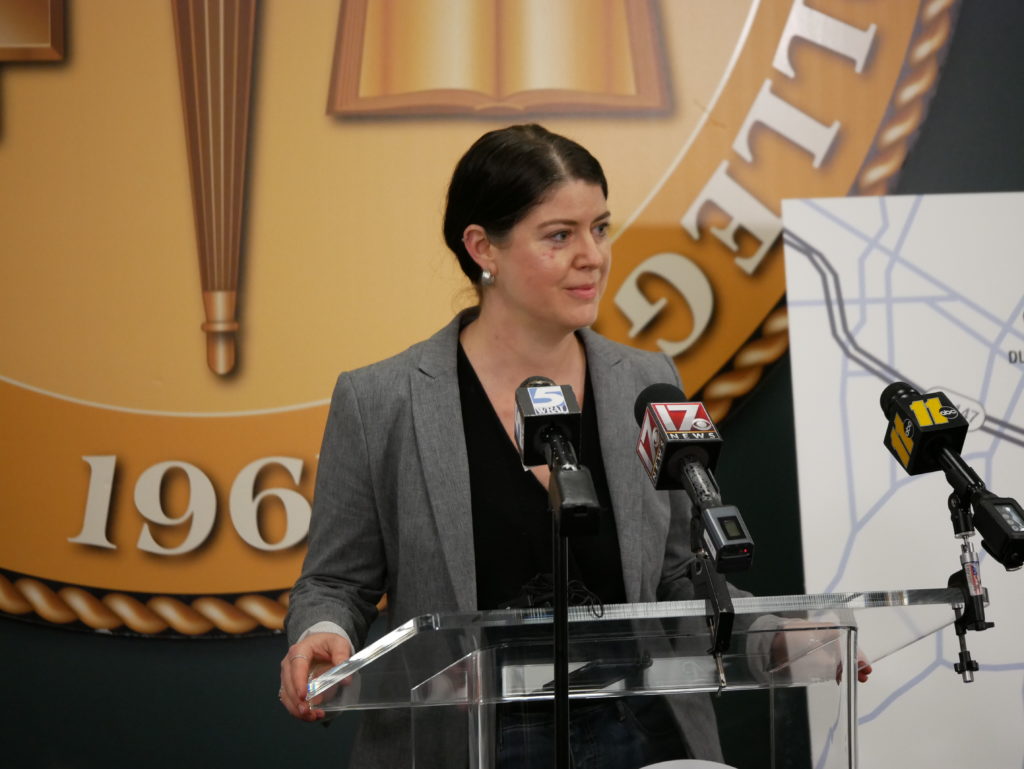
Earls has now lived at her current residence for six years after graduating in 2016 and saving money. She is back studying at Durham Tech to become a nurse.
“Affordable housing is so necessary for students and families,” Earls said. “It’s like lifting a weight off your shoulder when you don’t have to worry about where you’re going to live or if you’re gonna get put out next month.”
Pohlig is now living in Chatham County and opened her own software development business during the pandemic. Last year, she donated a scholarship for a Durham Tech student.
“I don’t necessarily think struggle is a bad thing,” Pohlig said. “I think that’s how we build our characters. But we build our characters by meeting the challenges, and we discover a resourcefulness, and our compassion expands for people who are in the same boat. I think this is how we become strong people. But that’s if it’s achievable. Sometimes the struggle is too hard. Sometimes you have to drop out of school to find a full-time job. And sometimes the struggle makes you bitter. And sometimes you have to live with people who hurt you. And when you go through all that, you can’t really focus on your work, on your family, or on your school … I think that affordable housing doesn’t erase the struggle, but that it makes it achievable.”
Recommended reading
